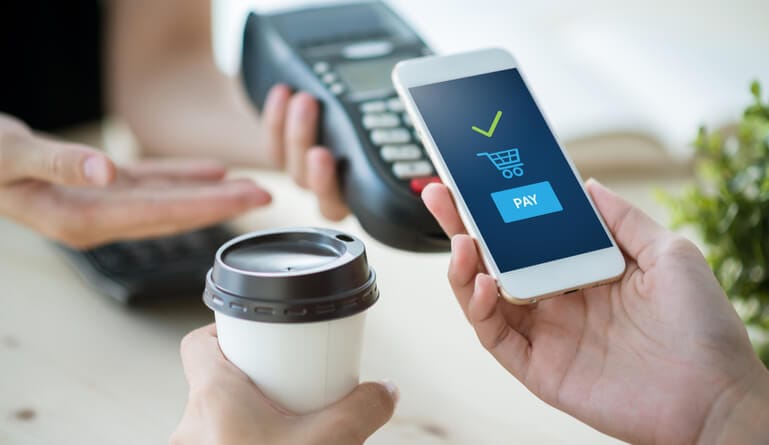The way customers have paid for products has changed over the course of time. From cash to checks to credit cards, businesses have had to be flexible with how customers prefer to pay and sometimes phase out some payment options to embrace better faster payment options. According to Business News Daily, mobile payments are expected to grow to $503 billion dollars worth of business. Additionally, Millennials are currently the largest audience for mobile payments and nearly half the people in this group have reported using mobile payment. This begs the question – can your business afford to not offer this option in your list of accepted payments?
Why SMBs should offer mobile payment technology to customers
1. Convenience
Businesses and customers both are busy. Mobile payment options give both parties a more convenient payment experience. Cashiers don’t need to make a change, customers don’t need to fish through their bag or wallet for the right card, and no one has to sign or sort paper receipts – all payment options are stored on a mobile device and with a touch or tap, a transaction is paid for. Mobile payment technology makes accepting payment almost instantaneously and accepting mobile payment at your small business means that you can better compete with other businesses who are offering the same fast, streamlined, convenient experience for their customers.
2. Security
At the onset of mobile payment technology being adopted by consumer-facing businesses, there was a concern about data safety and information privacy. How safe can a transaction conducted completely digitally or wirelessly be? These concerns actually had some companies convinced that mobile pay apps would never catch on and discouraged them from investing in the technology. The ACCEO Tender Retail Team notes that “research has shown that mobile payments are more secure than traditional forms of payment. They have the potential to reduce fraudulent POS transactions. This is possible thanks to the dynamic card authentication of the transaction at the point of sale. Card authentication checks whether a credit or debit card is legitimate. Tokenization is also used in mobile payment technology. It is defined as the process of replacing sensitive card information and billing information with a unique identifier that cannot be altered. Data of this type cannot be used to make fraudulent transactions.” This is important information for businesses to have to be able to reassure themselves and educate their customers.
3. Increased customer spends
There is an upfront investment in the technology that can help businesses process mobile payments, but it can be quickly offset by what research suggests are higher POS numbers. Customers who have the option to pay for their products or services with a mobile app often spend more than other customers. Some mobile wallet apps are compatible with loyalty programs, which have also been shown to increase repeat business and overall revenue.
4. Better insights
Mobile payments help your business stay up to date in trends and technology, which can give you a competitive edge and help you draw in more business. But mobile payment solutions are also good for gathering and tracking customer data to give merchants a better opportunity to engage with customers and offer more personalized experiences. The more information that businesses and merchants know about customers and their buying behaviors, the better they can market services and create the best customer experience possible.
5. More streamlined accounting
Small business owners need to have well-organized accounting and cash flow positioning to stay profitable and be successful. Using mobile payment technology streamlines your customer transaction process as well your accounting process by helping to reduce costs such as bank charges and overheads and offering better insight into cash flow positions. It can also help maintain record accuracy by eliminating data entry (which can reduce human error) and keep records up to date by helping businesses to avoid a transactional and invoice records backlog.
Brands like Starbucks, Target, and other popular retailers have included mobile payment options in their operations. Both companies use their native apps to offer ways to pay through store gift cards or stored payment, but most in-store locations also offer POS technology that enables customers to pay through other payment apps, like Apple Pay.
Should your business consider adding mobile payment technology to your operations? It’s not just big businesses and corporations who benefit from accepting mobile app payments. Using mobile payment technology can be a way to significantly increase your business profits, create more convenient and secure customer transactions, as well as help you get a better handle on your cash flow and accounting position. These are all key drivers of the long-term success of your SMB. For those organizations looking to remain competitive and streamline their business operations, adding mobile payment technology will likely be a smart investment.





